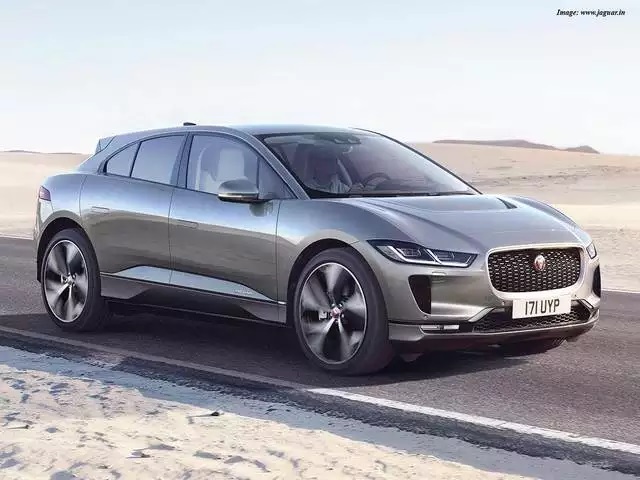(ATF) Amid the post-pandemic manufacturing slump that has left the auto industry battling to revive its fortunes, two big announcements came as a shot in the arm for the electric vehicle market in India.
The first was news this week that UK auto major Jaguar Land Rover will launch its all-electric SUV ‘I-Pace’ in India, with sales starting in March 2021, just a few weeks away.
But the announcement that could make India’s EV future electric came from Tesla, the world’s most high-profile electric carmaker, about its entry in India last month, following founder Elon Musk’s promise to launch his first car later this year.
This, and other reports about the launch of Mercedes Benz’s $140,000 EQC, and the release of four other EV models last year, suggest that electric vehicles are finally getting some momentum on the Subcontinent.
Yet despite this and a dozen more launches planned over the next six months, electric vehicles still have a way to go in India, experts say.
“We see a long road ahead for electric cars, because while EVs are trendy, they are still not the primary option for personal mobility,” Rahul Mishra, a partner at AT Kearney, told Asia Times Financial.
“The adoption (of electric cars) has been slow because EVs needed the push from the mainstream original equipment manufacturers (or vehicle makers) and that did not come because the they were struggling with a lot of challenges including policy uncertainty, migration to new emission standards, financial and technological challenges. Further, Covid has pushed the agenda back by 18 to 24 months, if not more,” he said.
Affordability is the crunch test
One of the primary factors hindering the popularity of electric cars is affordability.
Experts say people are keen to own an electric car, but widespread adoption is unlikely because of the very high total cost of ownership. According to a study by AT Kearney, electric cars are much costlier than petrol cars that run for less than 40 to 45 kilometres (about 28 miles) a day.
Beyond that threshold, electric cars offer a favourable cost proposition. But most people in Indian cities travel about 35 to 40km a day between their homes and workplaces, which limits the savings from EVs’ lower running costs.
Electric cars also face strong competition from compressed natural gas (CNG) vehicles. The cost analysis for electric and CNG vehicles in the entry-level sedan segment by Kearney suggests that at current CNG prices, electric vehicles offer a favourable cost proposition only above daily usage of 170 to 180 kilometres.
And there are several other challenges, such as lack of comparable product options, range anxiety, and a lack of experience with EVs.
Home charging continues to be a serious problem among prospective electric car buyers, as many Indian households do not have garages, which makes setting up charging infrastructure a difficult task.
Industry sources say the lack of highway charging infrastructure also restricts EV cars being used for intracity travel, at this stage.
Policy push
That said, there are growing efforts from both the government and carmakers to make electric cars more viable.
“Recently, there has been a lot of push from the government, both at the state as well as the central level, that augurs well for EVs,” Koushik Bhattacharya, director of Avendus Capital, told Asia Times Financial.
From a regulatory perspective, programmes such as the National Electric Mobility Mission Plan launched this year have paved the way for incentives and subsidies that will push manufacturers towards electric cars. Several of India’s largest states have also implemented schemes at the local level to drive production.
A dozen Indian states have adopted EV policies that have enabled manufacturers, as well as several startups, to make headway in the market.
To boost investment, India recently announced $4.6 billion in incentives to companies setting up advanced battery manufacturing facilities.
Prime Minister Narendra Modi is pushing the production and use of electric vehicles to reduce the country’s oil dependence and cut down on pollution.
But Mishra at AT Kearney said: “While EV makers earlier were depending on the government incentives to push adoption, many are now moving towards policy-agnostic strategies like price reduction, financing schemes, technology push, emphasizing on awareness, promoting new use cases like fleet use, mass mobility, etc.”
Inflection point
The good news is, with these changes, India is now at an inflection point of EV adoption, industry sources say.
India represents the fourth-largest automobile market in the world and the second largest for two-wheelers, with sales of 2.8 million and 17.4 million respectively in the 2020 fiscal year.
It is also a country with a massive dependency on oil imports. The oil import bill topped $100 billion in the 2020 fiscal year, Bhattacharya at Avendus Capital, said, adding that pollution in many Indian cities has also reached alarming levels.
“All these factors combined make a strong case for electric cars and given the present and projected level of EV penetration in the country, EVs in India could represent a Rs 500-billion ($7 billion) opportunity by 2025,” Bhattacharya said.
























